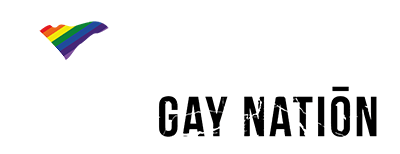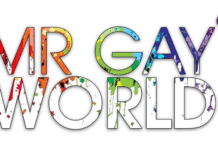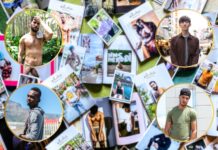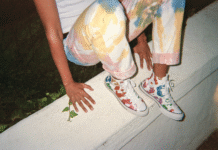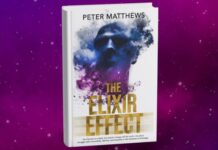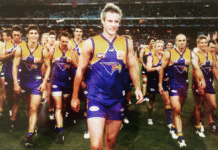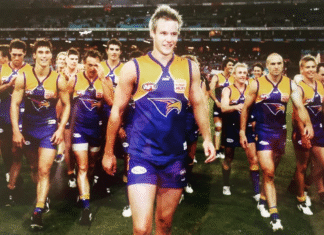
In a powerful new biography, Lesley Saddington lays bare the life of her son, Tony Carden, an AIDS activist whose relentless fight against injustice resonates deeply within the LGBTQI+ community.
“I Don’t Want to Talk About It: Biography of AIDS Warrior Tony Carden” is not just a book; it’s a raw and emotional journey through trauma, resilience, and the fierce love of a mother determined to honour her son’s legacy.
Tony Carden’s life was a battleground. From the harrowing experience of childhood sexual abuse, and a suicide attempt. Through his brilliant acting career, to the stigma of living with HIV during a time when homophobia reigned supreme, Tony emerged as a warrior.
And Saddington is ready for Tony’s story to be heard, all of it.
Speaking with Gay Nation, Saddington explained the book had a long gestation period.
“First, when Tony died in 1995 of AIDS in Sydney, many members of the LGBTQI+ community asked me to write his story, because they realised that he’d had a very interesting background as a Broadway entertainer and an actor,” Saddington explained.
“He’d trained in New York and he’d also achieved amazing things for the gay community during the AIDS epidemic in Sydney, through the AIDS Coalition to Unleash Power(ACT UP) and on his own as well, and so they wanted it written, but I couldn’t do it then. I was too grief-stricken.”
It was a piece of artwork called “Warrior Blood” that Carden created in 1994 for the National Gallery Exhibition about art in the age of AIDS, that led Saddington back to writing his story.
Warrior Blood was a collection of blood droplets on little pieces of card paper, all signed by the blood donors who wanted to help those with AIDS. Carden called it Warrior Blood because they were the people who were all working as warriors during the AIDS epidemic, trying to help all the falling soldiers.
“I did a catalogue of the warriors on Warrior Blood and went and found them all, interviewed them, and made a catalogue so that Warrior Blood was able to be explained,” Saddington said.
“In doing that, many of the warriors said, you’ve got to write his story and so did the lady who had been looking after the artwork. So I realised that I should because there’s not many people left who can, and it needs to be told.”

As Saddington was writing the biography the Royal Commission into Institutional Responses to Child Sexual Abuse occurred and she realised he had been abused as a child at school by two of his teachers which then led to his suicide attempt that he would never tell her about.
“He wasn’t unsuccessful in his suicide attempt because his brother caught him and saved him,” Saddington explained.
“When I found out what had happened to my son and when I saw that none of these people were being punished or even charged, or that they’d been found guilty by a Royal Commission, I decided I would tell the story.
“And all the story, including the story of ACT UP and the story of the AIDS epidemic and the story of what happens to children when they are sexually abused.”
The biography follows Carden’s journey that took him from the prestigious halls of Knox Grammar to the vibrant stages of New York’s Lee Strasberg Theatre Institute, where he initially sought solace in the performing arts.

However, the AIDS epidemic would soon redirect his path. After losing his best friend to the disease, Tony returned to Australia, joining the ranks of ACT UP Sydney, where he transformed protests into powerful performances that challenged societal norms and demanded change.
“Tony was very, very active right throughout his journey,” Saddington explained.
“He didn’t let the illness stand in his way, he helped very much through ACT UP, to get the drugs that they needed to extend their lives until we got combination therapy.
“In fact, he missed out just by a few weeks of being in that category.”
Saddington explained how her life and relationship with Tony was strong but at times they felt far apart.
“I described it as a mother and son journey through the rocky terrain of sexual abuse, homophobia, and living and dying with AIDS.
“We did it all together, he and I, although sometimes there was a great chasm between us because it wasn’t always easy for that to work for both of us.
“It’s a story of how a mother tries to understand and can’t, and how a son achieves great things in helping to look after the people he felt needed looking after.
“Because of the sexual abuse, after he realised he was not going to kill himself, it turned him into an activist.”

Lesley Saddington is no ordinary mother. With a rich tapestry of experiences as a medical technologist and an educator, she has channelled her grief and followed her son into activism.
Following Carden’s death in 1995, she became an Ankali volunteer, providing crucial support to those living with AIDS.
The biography is a testament to the struggles faced not just by Carden, but by countless others in the LGBTQI+ community during the darkest days of the AIDS crisis.
For Saddington the writing of the biography, although very sad, was more than a personal narrative; it’s a fierce indictment of a society that turned a blind eye to suffering.
“It took me two years of research to get the details I needed,” Saddington explained.
“But the effect it had on me, and many people say, was it cathartic doing that? No, it was not cathartic, it was heartbreaking.
“Every day it’s heartbreaking when I think of it, when I think of what happened, and when I think of what the world has lost with not only my son but all the talented people that lost their lives during the AIDS epidemic.
“It hurts, it hurts a lot. I often weep, but I had to do it because I think it needed to be recognised and honoured.”
Saddington described it as a mother-and-son journey through the rocky terrain of sexual abuse, homophobia, and living and dying with AIDS.
“We did it all together, he and I, although sometimes there was a great chasm between us because it wasn’t always easy for that to work for both of us.”
The book was launched last week in Melbourne and this week another launch will see Saddington speak alongside the famed piece of artwork Warrior Blood that will be on show from the Powerhouse Museum.
“I Don’t Want to Talk About It” is now available for purchase, inviting readers to delve into a narrative that is as much about love as it is about loss and resilience.
The book is now available for purchase from Amazon or via Tony’s website here and online bookstores.
Last Updated on Aug 22, 2024
The news team for Gay Nation love tips from our readers. Got tips or a news story that you would like published? Go here to tell us something.
Visit the Gay Nation store Now

